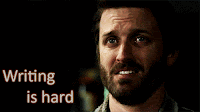 Recently, on October 10, 2016, Christopher Columbus' day was celebrated. Native Americans circulated a video through the internet, where they explained why they didn't think Christopher Columbus' deserved to be the one credited for the discovery of America. According to them, he simply got lost and named them Indians because Columbus though he was in India. In other words, they demonstrated the real meaning of that day, which for them represents evil, ignorance, murder, and so on. I highly recommend watching this video to fully comprehend their point of view.
Recently, on October 10, 2016, Christopher Columbus' day was celebrated. Native Americans circulated a video through the internet, where they explained why they didn't think Christopher Columbus' deserved to be the one credited for the discovery of America. According to them, he simply got lost and named them Indians because Columbus though he was in India. In other words, they demonstrated the real meaning of that day, which for them represents evil, ignorance, murder, and so on. I highly recommend watching this video to fully comprehend their point of view.
As to Billy's situation, it was difficult for him to adapt outside of his reservation. He
was discriminated by his teammates, authority, and many more ignorant people. In college, he had no friends because he didn’t share the same beliefs or preferences as most of the students. The scene in the movie that impacted me the most was when all of his teammates were invited by a fraternity, called Theta Sigs, to join them in an activity, where some members of the team could become part of the fraternity. However, Billy was prohibited from being a member of the Theta Sigs because they had a rule that no “Indian boys” were allowed into the fraternity. It was heartbreaking to see how motivated he was to meet new people and the members only cared for a stupid rule that was not even created by them. Often, people judged him for being Native American, instead of seeing the great human being and runner he was.
In the case of Billy Mills, he had the strength to chase his dreams against all odds. Even though, his story was one of success, some minorities, who are being constantly put down by others, don’t run the same fate and end up giving up on their dreams. This movie serves as a motivation to minorities, but also an eye opening experience for people with erroneous perceptions of others. Looks, race, beliefs, among others, shouldn’t be a variable that determines one’s capacity or worth. As the Bible says, treat others, as you would like to be treated.
A short video of the race where the distance runner, Billy Mills, won the 1964 Tokyo Olympics' gold medal.

























